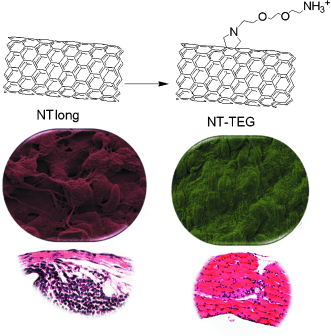For at least the past five years, NGOs committed to seeing nanotechnology research stopped dead in its tracks have trotted out Ken Donaldson’s research at the University of Edinburgh to support their aims. Donaldson’s research indicated that multi-walled nanotubes (MWNTs) that are longer than 20 μm have a similar pathogenic effect to asbestos.
The writing was on the wall right from the beginning for any concern this research might have generated. The common sense question was: What if you kept the MWNTs short?
Richard Jones essentially raised this question on his blog at the time of Donaldson publishing his research in Nature Nanotechnology: “Not all carbon nanotubes are equal when it comes to their toxicity. Long nanotubes produce an asbestos-like response, while short nanotubes, and particulate graphene-like materials don’t produce this response.”
“The apparent structural similarity between carbon nanotubes and asbestos fibres has generated serious concerns about their safety profile and has resulted in many unreasonable proposals of a halt in the use of these materials even in well-controlled and strictly regulated applications, such as biomedical ones,” said Kostarelos in a university press release. “What we show for the first time is that in order to design risk-free carbon nanotubes both chemical treatment and shortening are needed.”
This certainly doesn’t put the issue to rest. Not for the reasons that NGOs will likely employ—which will be to ignore this most recent research—but because how can we be assured that MWNTs used in a material matrix do not exceed 20 μm in length? Further, what about the safety of the workers who handle the MWNTs before they are chemically functionalized (shortened)?
Sound scientific research is still needed and it will in all likelihood be pursued. Whether this will satisfy those who are well-versed in how to leverage preliminary studies into scare screeds remains to be seen. When more in-depth research finds that those preliminary studies were not as well founded as they made others believe, the fear mongers typically remain defiant in part through dismissing the latest research.
Dexter Johnson is a contributing editor at IEEE Spectrum, with a focus on nanotechnology.




